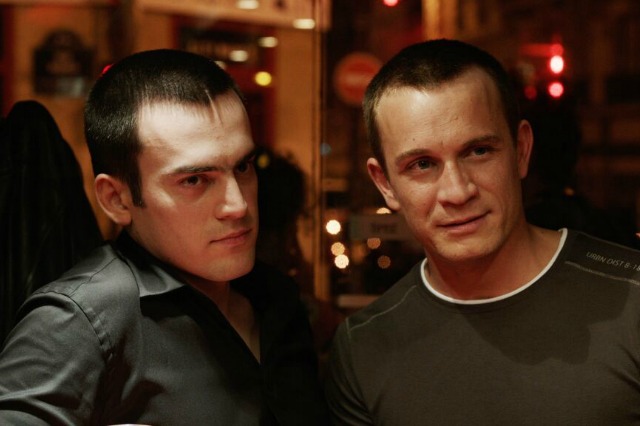Vets Grapple With Their Identities In Beautifully Nuanced 'The Great Man'
By Joel Wicklund in Arts & Entertainment on Nov 21, 2015 8:29PM

Surho Sugaipov and Jérémie Renier in "The Great Man." (Photo: Distrib Films US)
A beautifully nuanced work, dramatically and visually, The Great Man depicts the pitfalls of veterans returning to civilian life, but it's not an "issue movie" in the way so many movies on the subject (good and bad) can be classified. This French film is deceptively restrained, but its portrait of camaraderie and masculinity set adrift packs a quietly powerful punch.
The Great Man is uniquely structured, changing points of view among three central characters and broken down into chapters named for them. But the names of those characters change as the story progresses and the idea of shared, interdependent identities becomes prominent.
The first chapter shows a glimpse of the military experiences of Hamilton and Markov (Jérémie Renier and Surho Sugaipov), serving in Afghanistan for the French Foreign Legion. The close bond between the soldiers is cemented when Markov saves Hamilton's life during an ambush. This segment is narrated by a child, whose identity is made clear in subsequent chapters.
Despite his heroism, Chechen immigrant Markov is denied the French citizenship he was pursuing through his service because of some unauthorized actions. Returning to reclaim his son from friends who looked after him during his military tenure (the mother having died), Markov struggles to find work until Hamilton, recently released from a rehab facility, gives him his I.D. to use to pass himself off as an authorized worker.
The masquerade leads to unexpected consequences for both men, but this plot device never transforms the movie into melodrama. Director and co-writer Sarah Leonor sticks to understated realism, though her visual approach is often subtly poetic. A shot of a leopard seen through night vision goggles is held long enough to sense the mission of simple survival within the predator. Two separate sequences of shoes being tied wordlessly fill in motivations of the characters.
The film features fine performances by two first-time actors. Sugaipov, a mixed martial arts athlete, effectively conveys the repressed frustrations of a man who has lost so much so early in life. Even more impressive is 13-year-old Ramzan Idiev as his son, a boy equally needy and wary of relying on anyone after a largely parentless upbringing.
As good as they are, the movie ultimately belongs to its more experienced star, Renier, whose own career began as a child actor. Over the last 20 years, he has emerged as a significant talent, working with top European filmmakers like Francois Ozon, Olivier Assayas, and the Dardenne brothers (with whom he has made five films, beginning with La Promesse when he was just 15). Renier is superb as the slightly manic Hamilton, who clings to the Legion as the very core of his being, even as he knows he has to define himself away from it.
Viewers suffering from military movie numbness should know this is worlds removed from features like American Sniper, The Hurt Locker, Zero Dark Thirty and Jarhead —all very good movies that put the combat experience front and center. Not only is The Great Man primarily set on the home front, but it’s a different home front than Hollywood shows us (and with the immigrant experience central to the story, the notion of "home" is a fluid one).
As Leonor presents it, French society's view of veterans seems less heroic and perhaps more dismissive (though considering the VA scandals allowed to fester here in the U.S., also perhaps less hypocritical). But the film isn't really about how veterans are viewed—it's about how two very specific veterans view each other and themselves.
The Great Man. Directed by Sarah Leonor. Written by Leonor and Emmanuelle Jacob. Starring Jérémie Renier, Surho Sugaipov and Ramzan Idiev. 107 mins. In French and Chechen with English subtitles. No MPAA rating.
Opened Friday, Nov. 20 at Facets Cinémathèque. Also available as video-on-demand through iTunes and Fandor.